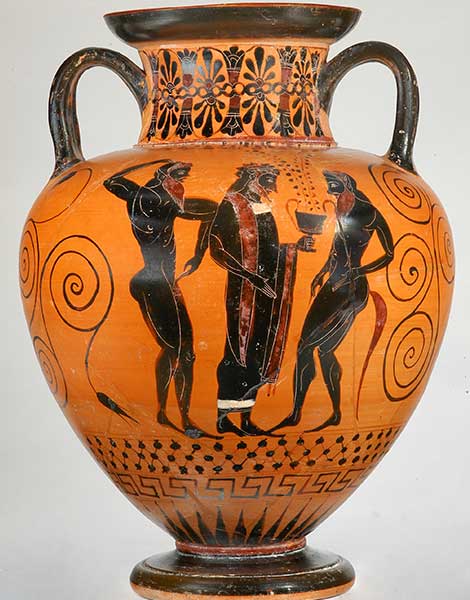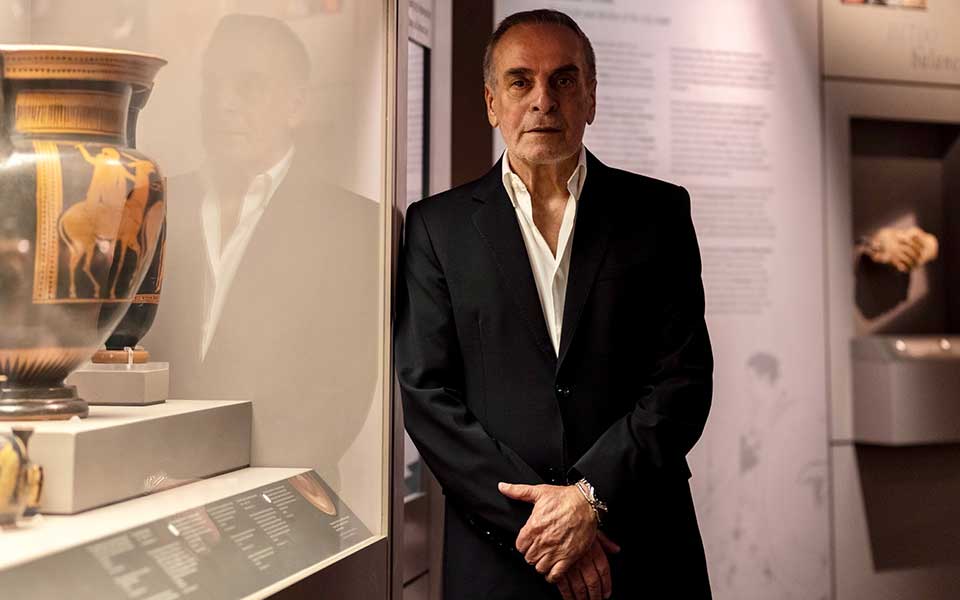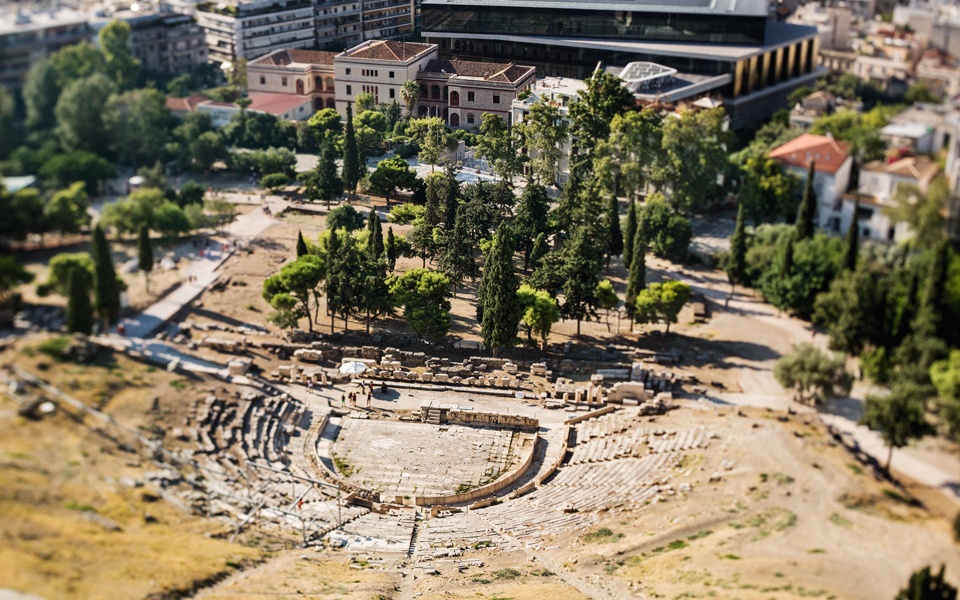The Museum of Cycladic Art is planning an archeological exhibition on the subject of ancient theater for the end of 2023. The new exhibition, the title of which will be announced soon, will be the first curated by the museum’s new Scientific Director, Dr Nikolaos Kaltsas.
The exhibition will focus on ancient drama as an expression of democratic thought. Sculptures, vases with scenes from tragedies, artifacts related to actors’ costumes and the cult of Dionysus, the god of theater, loaned from museums in Greece and Europe, will frame the exhibition, enabling the visitor to explore the deeper meaning of drama and its role as both education and entertainment in ancient Greek society.

© Museum of Cycladic Art, Collection number ΝΓ 716 / Photo G. Fafalis

© Psiax - Jastrow
Connected with the worship of Dionysus, the god of vegetation, fertility, and religious ecstasy, theaters in ancient Greece were originally used for cultic ritual performances. Mythology and the Epic Cycle inspired the great tragedians of the 5th century BC, Aeschylus, Sophocles and Euripides, to compose texts that touched upon universal themes, exploring moral, social and political issues, while the satirical comedies of Aristophanes poked fun at the state of society and its ruling elites; the cornerstone of free expression in early democratic Athens. Most importantly of all, attendance at the theater was open to everyone, even slaves.
Ancient Greek tragedy provided the blueprint for the writing of similar works during the Roman period, notably by Seneca and Quinto Ennio, then in the Renaissance and later by writers such as Racine, Voltaire, Alfieri, Shakespeare, Goethe, and others. It was also a source of inspiration for the creation of another genre, opera.

In a statement on the website of the Museum of Cycladic Art, Scientific Director, Dr Nikolaos Kaltsas commented:
“If isegoria, the equal right of all to freedom of speech in public, is one of the basic components of Athenian Democracy, then it is no accident that, when the seed of this political system was sown in Athens, on the lower south slope of the Acropolis, theater developed, as an expression of free democratic thinking. In Tragedy the myth is merely the pretext; everything else is the creation of the poet, who, on stage, poses dilemmas, judges, condemns, praises, doubts, and leaves the spectator to choose side. Mainly, however, he leaves them with questions. On the other hand, Comedy did not use any mythical place and time, only the city of Athens at its present time, commenting caustically on current circumstances.”
“Just like a miracle this perfect poetic-theatrical genre, was born in Athens and achieved greatness 2,500 years ago while it continues to be relevant today. With plays of the tragic poets performed by leading theatre companies not just in Greece but all over the world, theater still moves and fascinates the audience. Distinguished Greek and celebrated foreign directors, such as Dimitris Rontiris, Karolos Koun, Peter Stein, Max Reinhardt, Bob Wilson, Yukio Ninagawa of the Νο theatre, have staged ancient Greek tragedies to great acclaim. Here at the Museum of Cycladic Art, we have selected Theater as the theme for our next exhibition, since so far no exhibition has been presented which ‘teaches’ ancient drama in all its breadth, from its birth as cultic ritual performances to its development and its perfection as supreme literary and theatrical genre, he added.”












